How To Create Beautiful Sounding Chord Progressions On Guitar
by Simon Candy
This article is based on a concept covered in a previous lesson on creating beautiful music with simple chords.
I encourage you to check this lesson out, however, it is not necessary to understand and benefit from what is presented to you today.
With that said, we are now going to introduce a third chord, the D, to go with the E and A chords from the lesson linked above.
There are two reasons why I have chosen the D chord:
1. The A E and D chords all belong to the same key, A Major.
2. The D chord fits in with the strategy applied to the A and E chords previously regarding droning open strings
The video below will help reinforce and further train what was covered previously as well as what we cover in this lesson, so bookmark it to check out after working through what follows:
First, I am going to run you through the steps we did with the E chord previously, only with the D chord this time.
Step 1: D Chord Shapes
Here are the three D chord shapes we will be working with:

Here are the diagrams for each chord:
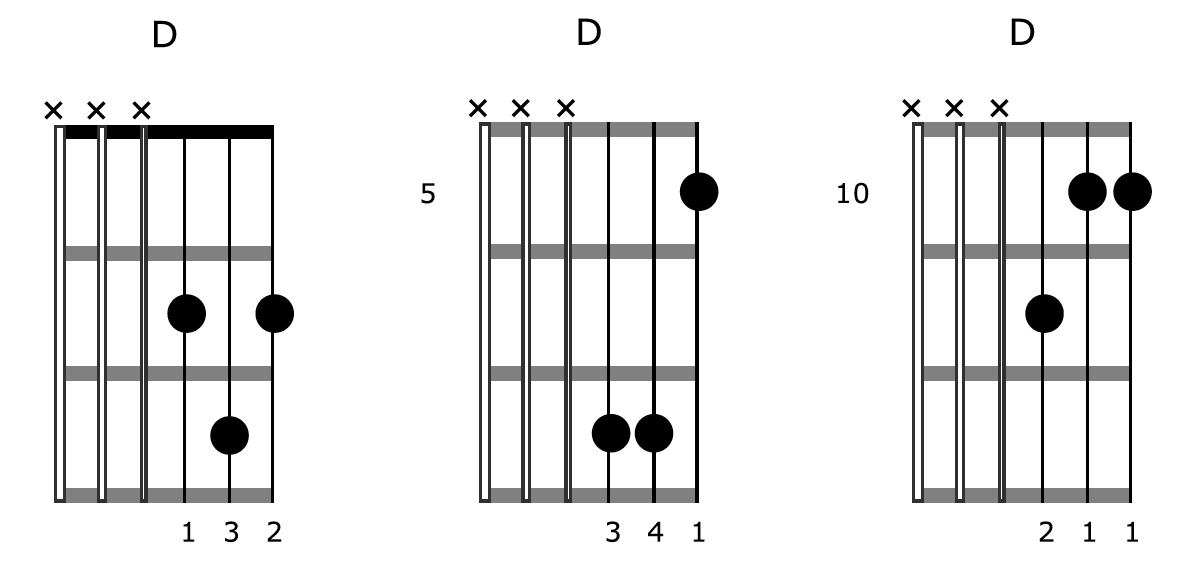
Step 2: Open Strings (High Drone)
Next, remove the finger that is on the first string of each chord to allow the open E note to ring throughout:

Here are the diagrams for each chord:
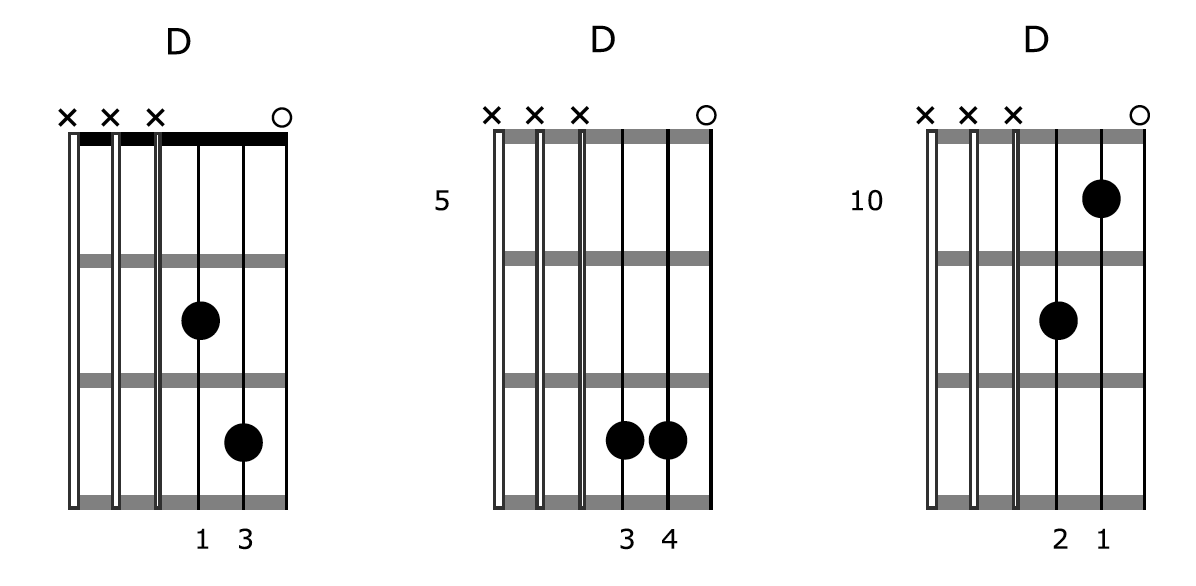
Step 3: Open Strings (Low Drone)
Let’s also add the open 4th string bringing a more full sound to our chords:

The open 4th string is a D note, the root note of our chord, so it works out well.
Here are the diagrams for each chord:
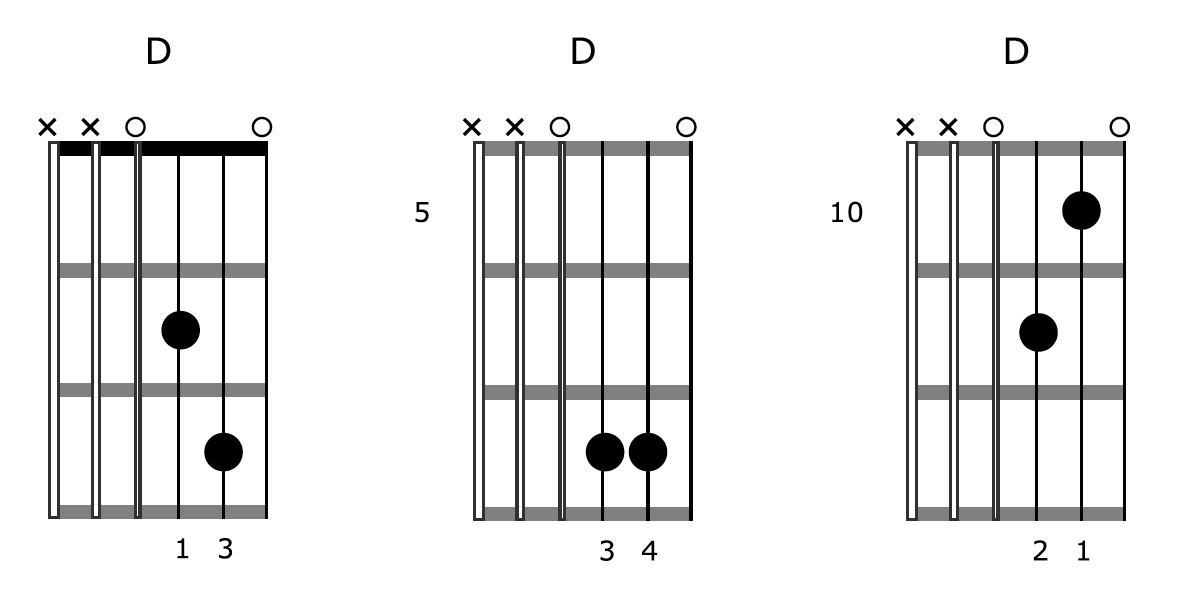
To become a little more familiar with the D chord shapes on your guitar, here is a drill that breaks up each shape as you run them up the fretboard:

Here is another drill, similar to the first, only picking each note separately within each chord shape:

Step 4: Adding Notes
Now, we are going to add notes to our D chord shapes.
Here are the more consonant notes you can add to each chord. Each of these notes belongs to the key and is why they sound more “in” to your ear for the most part:



Here is a mixture of consonant and distant sounds that can be included with the D chords. I am simply adding every possible note that falls within the position of each chord on the top string:



Remember all notes can work, in and out of key. It’s a matter of working with each sound and getting it in your ear that will determine how well you can get it to work within the context of the chord.
Step 5: Connecting Chord Shapes
To create music with each of our A, E, and D chords, we need to organise each of them by position on the fretboard. We did this with the A and E chords in the previous lesson, and will now simply add the corresponding D chord to each of those pairings like so:
• Chord Grouping 1
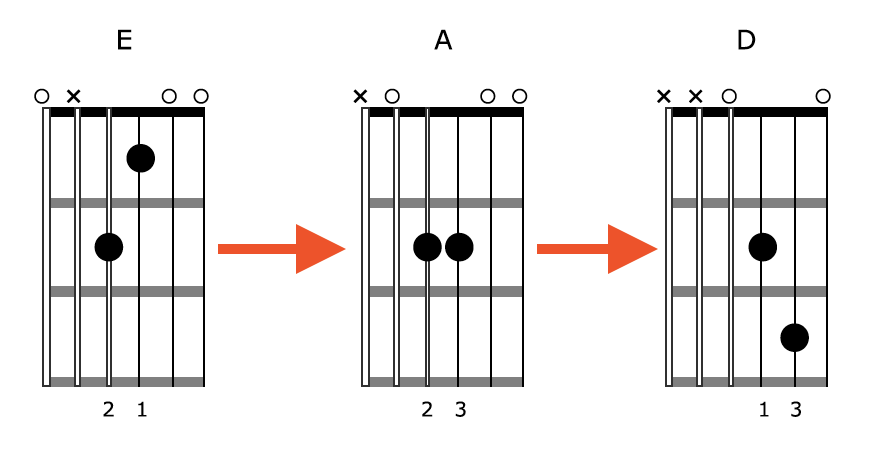
• Chord Grouping 2
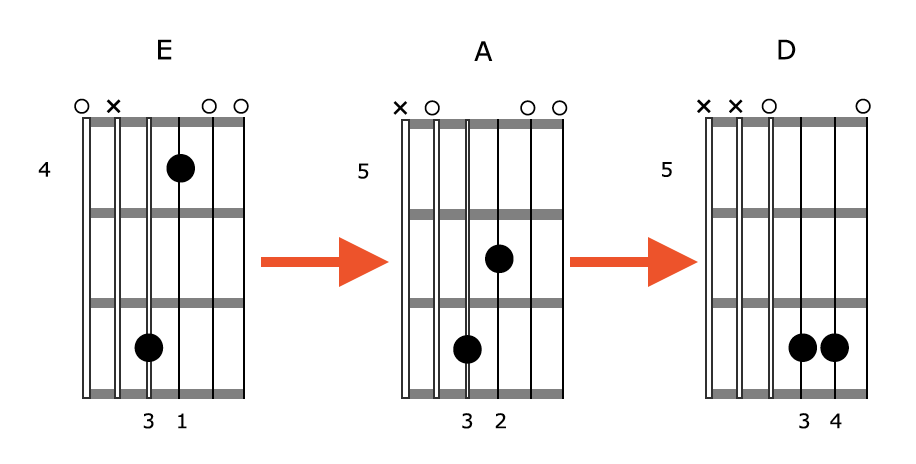
• Chord Grouping 3
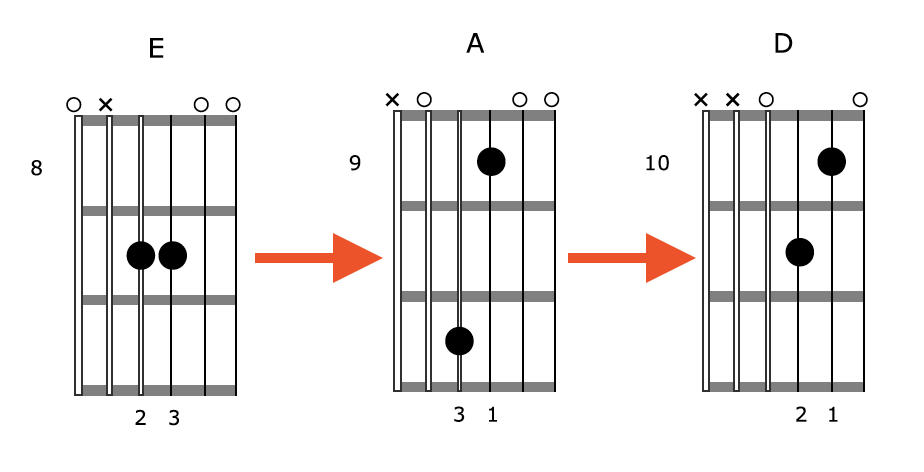
It is important to thoroughly learn the chord groups shown above. Being able to visualize the relationships between chords on the fretboard is crucial to having them easily accessible during guitar playing when there is no time to think.
Two Common Chord Progressions With A Difference
The following are two of the most common chord progressions you will play on your guitar, however, with a difference thanks to our creative chord strategy.
• A Major Chord Progression
Here is a typical chord progression in the key of A Major using our A, D, and E chords:
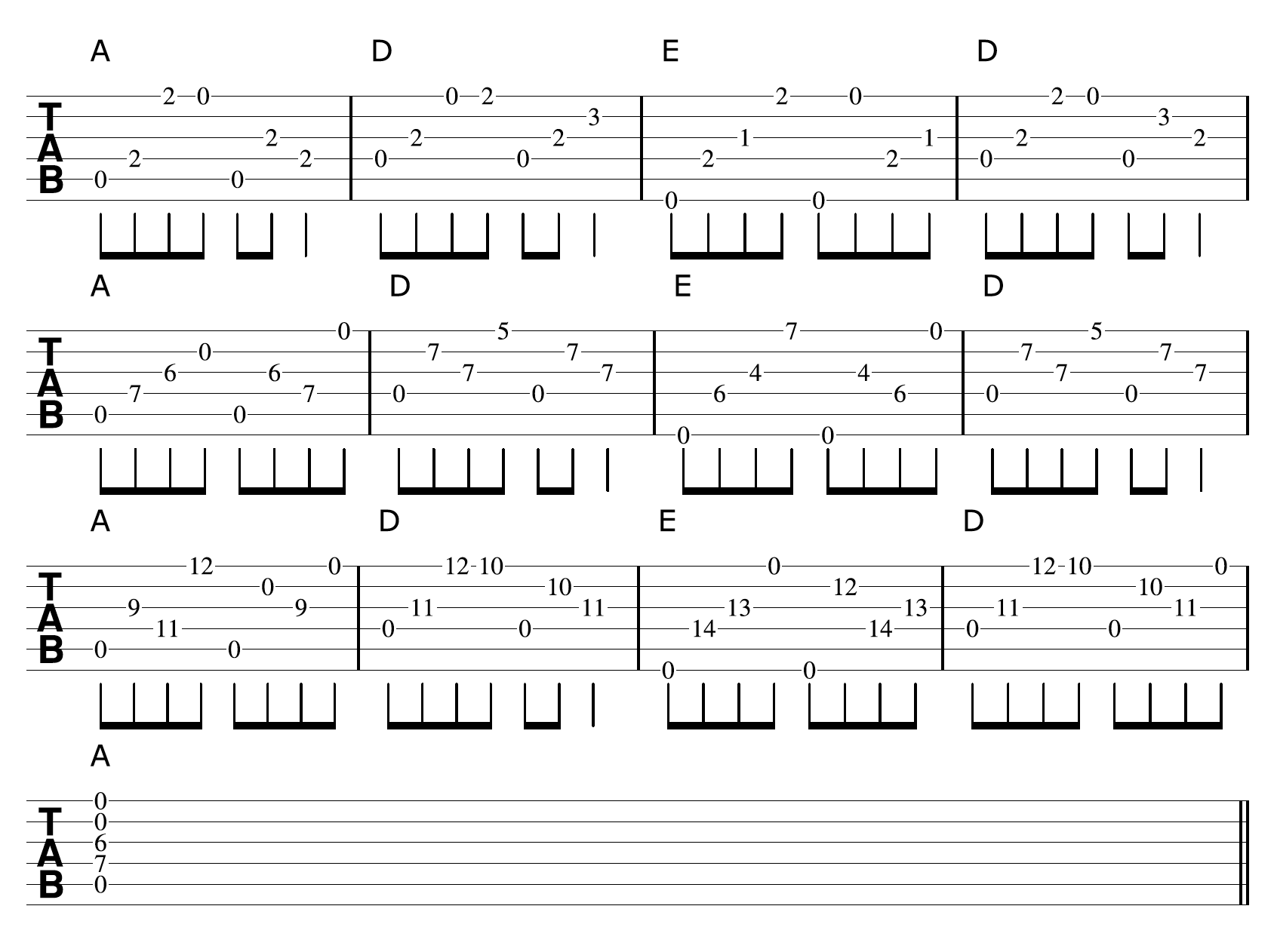
Each time I play through the progression above, I am moving up the fretboard to the next position to play each of these chords.
• A Blues Chord Progression
Here is a 12 bar blues progression in A using our A, D, and E chords:
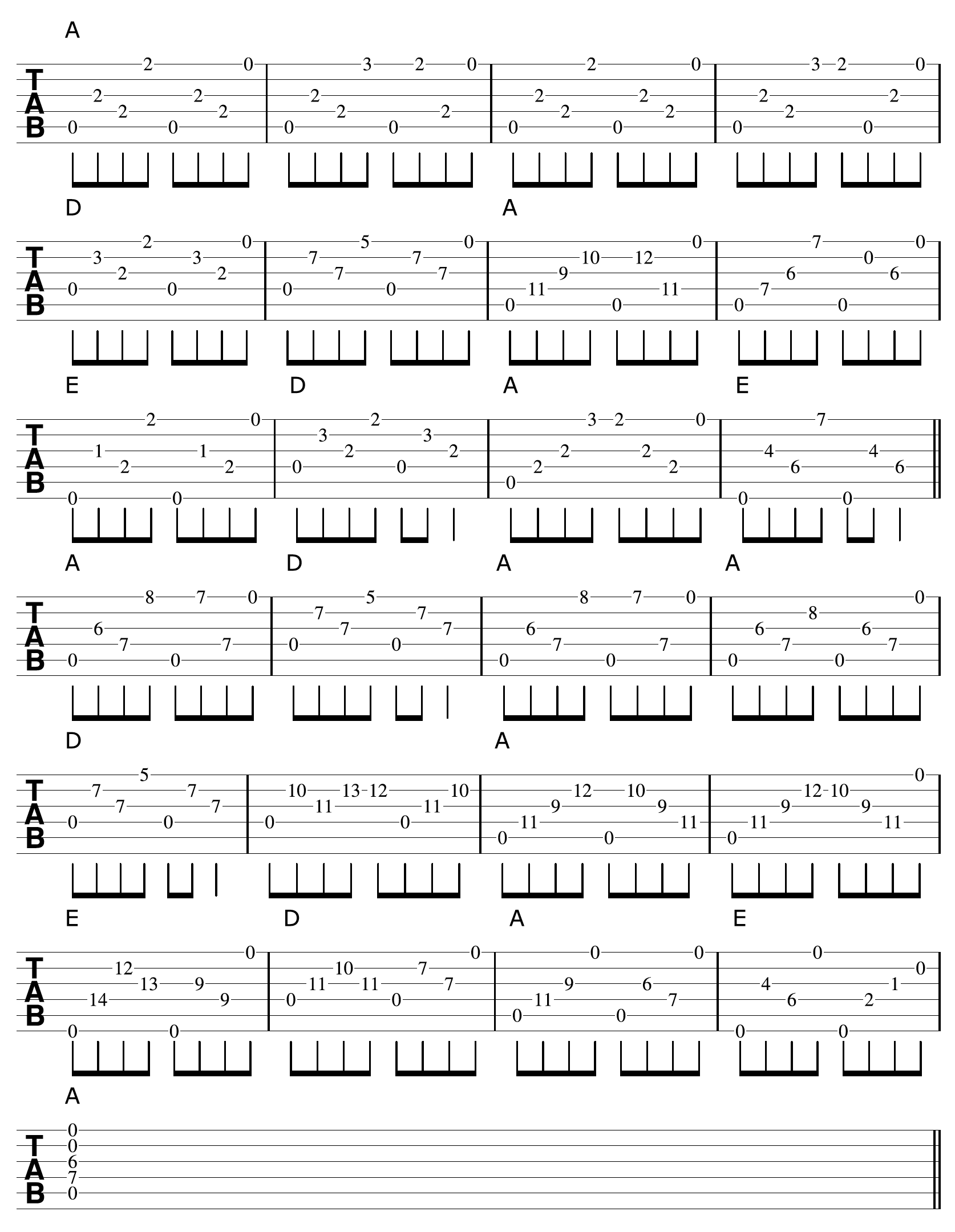
This progression consists of two 12 bar blues choruses in the key of A, utilizing various A, D, and E chord shapes from above:
Now you have the A, E, and D chords under your fingers, there are many progressions and songs you can apply them to.
Here are just a few to get you started:
• Jack And Diane - Jonh Cougar Mellencamp
• Satisfaction - The Rolling Stones
• I Saw Her Standing There - The Beatles
• Cocaine - J.J. Cale
• Lean On Me - Bill Withers
• Sweet Caroline - Neil Diamond
• Chasing Cars - Snow Patrol
• Born In The USA - Bruce Springsteen
• Walk On The Wildside - Lou Reed
• Johnny B Goode - Chuck Berry
These songs are composed entirely of A, D, and E chords, or they prominently feature these chords. You can use these songs and progressions to create different versions using the method taught in this article.
Discover more chord shapes to create beautiful sounding music on guitar